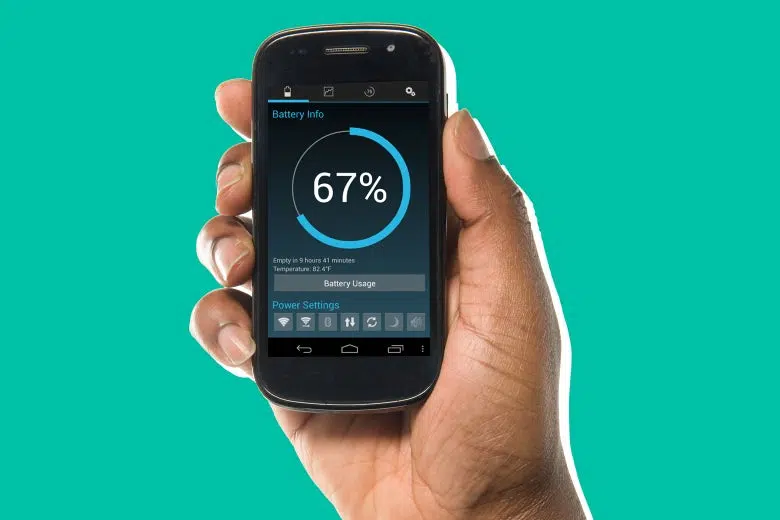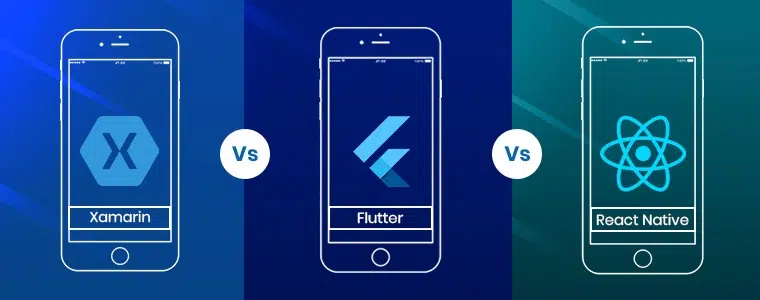Top 8 Challenges In Mobile App Development For Enterprise (+ How to overcome)
In today’s digital landscape, mobile apps have become indispensable for enterprises, acting as catalysts for productivity, process optimization, and customer engagement. They connect users with services anytime, anywhere, fostering accessibility and responsiveness. However, mobile app development is fraught with challenges that can impede progress and innovation. Thus, our article will list out the top eight challenges in mobile app development for enterprises and the strategic approaches to overcome them, ensuring businesses not only survive but thrive in the digital age.
Statistical Information About Mobile Apps
The mobile application landscape has witnessed a remarkable surge, boasting an expansive array of over 5 million apps available on major platforms such as iOS and Android. With an annual growth rate averaging around 15%, this domain persists in its trajectory of robust expansion.
- Usage Statistics: Mobile applications have evolved into indispensable tools within both enterprise frameworks and customer interactions. On average, employees within enterprises allocate approximately 2 hours daily to mobile app usage, with sessions typically spanning around 10 minutes. Concurrently, customers exhibit pronounced spikes in usage across domains including social media, productivity, and e-commerce, underscoring the pervasive influence of mobile applications.
- Revenue Statistics: From a financial standpoint, mobile applications have wielded considerable impact, with enterprise-centric apps playing a pivotal role in revenue generation. Notably, in-app purchases and subscription models have emerged as particularly fruitful avenues. Projections indicate that global revenue derived from mobile applications is poised to surpass $935 billion by 2023, with a significant share attributable to enterprise solutions.
- Adoption Rates: Adoption rates manifest variances across sectors, with healthcare, finance, and retail occupying the vanguard. The healthcare sphere has experienced a notable 15% surge in mobile app adoption, while finance and retail have witnessed even more substantial growth rates of 20% and 25%, respectively. These trends are chiefly propelled by the escalating demand for seamless access to services and information on the go.
Why Are Mobile Apps Essential For Your Business?
Mobile applications are no longer just another strategy for business growth; they have become essential in today’s digital world. The impact of mobile apps can be profound, marking the difference between success and substantial business losses. Mobile applications represent the next significant step for your business, offering several key advantages:
- Enhanced Customer Engagement: Mobile applications provide personalized user experiences. With detailed user information, you can offer tailored content and targeted services, fostering customer loyalty by building long-lasting relationships through consistent engagement.
- Increased Brand Visibility: Mobile apps significantly boost brand visibility. They enable you to amplify your brand’s presence, increasing awareness and retention. By maintaining a constant presence on users’ devices, your brand remains top of mind.
- Seamless User Experience: Mobile apps deliver intuitive interfaces and optimized functionalities, offering a delightful user experience. User-friendly apps enhance customer satisfaction, increase conversion rates, and encourage repeat business.
- Data-Driven Insights: Apps provide valuable data on user behavior and preferences. This data allows for informed business decisions and the creation of targeted marketing and sales strategies. Additionally, in-app promotions, exclusive discounts, and personalized offers can keep customers engaged and coming back.
Embracing mobile applications can transform your business, driving engagement, visibility, user satisfaction, and data-driven growth.
Top 8 Challenges In Mobile App Development For Enterprise
The popularity of mobile apps has surged dramatically across various industries, becoming essential portals for conveniently accessing everyday services through different digital platforms.
Hiring a software development company can help you achieve a market-leading app. However, it is important to recognize that even the best development companies encounter hurdles in every project.
If you aim to build a mobile app for your brand, it is crucial to understand the prominent challenges in mobile app development and their solutions. Additionally, staying informed about the latest trends and associated challenges ensures that your app adapts perfectly to the market. Below, we present the top eight challenges in mobile app development, along with practical strategies to overcome them.
Finding an app development team

Choosing an application development team that understands your intentions is also a major challenge in software development
Enterprises often grapple with assembling teams of developers proficient not only in technical mobile app development but also in understanding business intricacies. The scarcity of such versatile talent can significantly impede the development process, hindering app alignment with overarching business goals.
To address this challenge, enterprises must adopt a strategic approach. They should broaden their search by leveraging professional networks, specialized job boards, and collaborations with reputable development agencies. Priority should be given to candidates with substantial app development experience and a strong grasp of business fundamentals. Cultural fit and excellent communication skills are also crucial for seamless integration within existing teams and workflows.
This proactive sourcing strategy aims to bridge the gap between technical prowess and business acumen, laying a solid foundation for successful app development endeavors.
In addition, Savvycom, a trusted software outsourcing service is making waves in the world of healthcare tech, helping out with projects that use IoT to make things better. They’re known for their top-notch work across finance, healthcare, blockchain, and more. If you’re in a jam with digital changes, Savvycom is the place to turn to for help. Explore our portfolio!
Compatibility issues with some devices
A significant challenge looms large: ensuring compatibility across the diverse landscape of devices. Developers are tasked with navigating variations in screen sizes, operating systems, and hardware capabilities, which can precipitate inconsistent user experiences and performance setbacks, ultimately jeopardizing the app’s success.
To surmount this obstacle, the application of responsive design principles is paramount. This approach facilitates the creation of flexible user interfaces capable of adeptly adjusting to diverse screen dimensions. Additionally, thorough testing across an extensive array of devices is imperative to unearth and address compatibility issues proactively. Leveraging software testing tools featured in Spotsaas can simplify this process by automating checks across different operating systems and screen sizes, ensuring consistent performance and user experience. While emulators and simulators can offer assistance in this regard, testing on authentic devices is preferable to ensure precision.
Furthermore, the continuous updating of the app with the latest operating system versions assumes critical importance. This practice not only sustains compatibility but also enables the utilization of new features, thereby fostering a seamless experience for all users.
Emerging technologies outpacing IT’s knowledge
The swift pace of technological advancement, including AI, AR, and IoT, often outpaces the knowledge base of IT teams. This discrepancy can impede the development of enterprise mobile apps, particularly when they necessitate integration with backend data for a competitive edge. The pressure to innovate may foster unrealistic expectations, causing a gap between executive vision and practical execution.
To resolve this challenge, continuous learning and development initiatives are imperative. Encouraging IT professionals to participate in industry conferences and engage with technology experts facilitates staying current with advancements. A technology roadmap serves as a strategic blueprint, delineating the adoption of new technologies and the rollout of mobile app features to users. By cultivating a culture of curiosity and lifelong learning, coupled with an agile mindset, IT teams can adeptly navigate technological shifts.
This proactive stance is vital not only for CIOs and CTOs but for the entire IT workforce across industries. It ensures organizational leadership in technology trends, enabling effective utilization for business prosperity.
Battery consumption and functionality

Ensuring that the application’s battery consumption is always at an acceptable level is also a major obstacle
High-performance functionalities in mobile apps can significantly drain device batteries, which can lead to user dissatisfaction. Ensuring that an app operates efficiently without excessive battery consumption is crucial in the development process.
Thus, developers should adhere to best practices for optimizing battery usage, including efficient coding practices to reduce power drain, minimizing background processes, and integrating battery-friendly features. Thorough testing for battery consumption during the development phase is essential. Creating a beta version and conducting iterative testing help fine-tune the app to function seamlessly with minimal battery impact.
Attention to these details throughout the development cycle ensures the delivery of an app that balances robust functionality with efficient battery usage, thereby enhancing the overall user experience.
Keeping the project on-budget
Budget overruns are a frequent challenge in app development, often stemming from unexpected hurdles and changes in scope. These overruns can rapidly escalate, particularly when extended development periods require additional hours from developers, designers, and other involved professionals.
To keep a project within its financial boundaries, meticulous project planning is paramount. This involves establishing realistic budgets and maintaining clear communication with all stakeholders to manage expectations effectively. Regular budget reviews and contingency planning play crucial roles in monitoring expenses and promptly addressing any financial deviations. Such proactive financial management ensures that even if a project surpasses its budget, it remains controlled and within acceptable limits, aligning with both client expectations and project objectives.
Features of the app
Determining essential app features and deferring non-critical ones requires a multifaceted approach. Functionality, design, and user experience all play pivotal roles in initial success.
Effective solutions entail thorough market research and user feedback collection to pinpoint crucial features. Prioritizing functionalities aligned with business goals is paramount. Embracing a Minimum Viable Product (MVP) strategy enables testing core features and evaluating user reception before diving into extensive development. This method guarantees a user-centric, business-driven approach, delivering value from the outset and facilitating iterative improvements in response to user demands and market shifts.
Security

No user can really feel secure using an application with poor security
Security stands as a paramount concern in mobile app development, given the potential ramifications of vulnerabilities on both enterprise and user data integrity. Ensuring apps remain impervious to malware and other security threats is imperative to avoid costly fixes and operational disruptions.
The implementation of robust security measures becomes indispensable. This entails the adoption of data encryption protocols to safeguard information during transmission and storage, the deployment of secure authentication methods to verify user identities, and the conduct of routine security audits to unearth potential vulnerabilities. Furthermore, adherence to industry standards such as GDPR and HIPAA holds significant importance, not only for regulatory compliance but also for instilling user trust.
By placing a premium on security, developers fortify their defenses against breaches, thereby upholding the integrity of the app and the sanctity of its associated data.
Cross-platform app development
Developing applications that seamlessly operate across various platforms, including iOS, Android, and Windows, presents numerous technical challenges. Achieving consistent functionality and performance across different devices and operating systems demands a nuanced approach to app development.
To address these challenges efficiently, utilizing cross-platform development frameworks like React Native, Flutter, or Xamarin is highly advisable. These frameworks facilitate code reuse and expedite development cycles, essential for meeting project deadlines and budget constraints. Additionally, they contribute to maintaining a uniform user experience, crucial for retaining users and enhancing satisfaction.

These frameworks facilitate code reuse and expedite development cycles, essential for meeting project deadlines and budget constraints – Image Source: ValueCoders
Early identification of cross-platform requirements, with a focus on compatibility with different operating systems and screen sizes, is paramount for successful app deployment to a diverse user base.
Creating an appealing user interface
Designing an intuitive and visually appealing user interface (UI) is essential for fostering user engagement. Research indicates that 52% of users are less inclined to engage with an organization if they have a poor mobile app experience. Therefore, the challenge lies in creating a UI that is not only aesthetically pleasing but also facilitates seamless navigation and interaction, enabling users to utilize the app’s features without confusion.

Polishing the application interface is the best way to attract users
Adhering to platform-specific design guidelines is crucial, as it ensures consistency with user expectations. Conducting usability testing with real users is also vital, as it helps identify pain points and areas for improvement. Simplicity and user-centric design must be prioritized, as an overloaded interface can overwhelm users and detract from their overall experience. Collaboration with experienced UI/UX designers is essential to strike a balance between visual appeal and functional simplicity.
Summary
In summary, to thrive in the fiercely competitive market and address the genuine challenges of mobile app development, it’s crucial to focus extensively on the development process steps. Essentially, you need to ensure that you are creating high-quality apps that can achieve significant success and offer effective mobile app development solutions.
Savvycom – Your Trusted Tech Partner!
With 25+ years of experience, Savvycom has used digital technology to help businesses thrive across a wide range of industries. We provide from high-quality technology consulting or end-to-end software development sevices to maximize your business potential.
Savvycom is what you need. Contact us now for more consultation:
- Phone: +84 24 3202 9222
- Hotline: +84 352 287 866 (VN)
- Email: [email protected]


